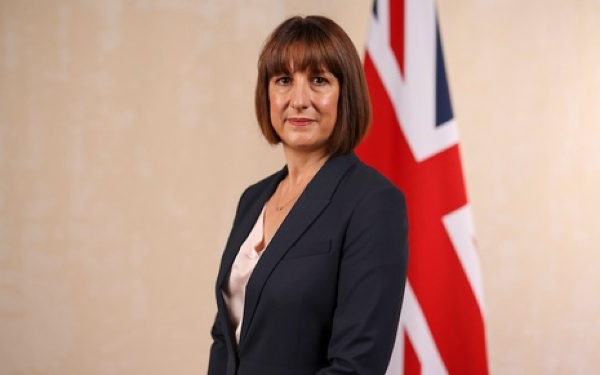
How do you think the Budget will impact the social care sector?
- It will strain the sector further with cuts and job losses. (65%, 432 Votes)
- It's too early to tell. (22%, 146 Votes)
- It's a step in the right direction, albeit a small one. (13%, 83 Votes)
Total Voters: 661
Social care services will receive an extra £600m at least in government grant funding next year, chancellor Rachel Reeves announced in today’s Budget.
The package was part of a settlement for local authorities in England that will see their available budgets rise by an estimated 3.2% in real terms in 2025-26, compared with this year.
The government also pledged over £250m to test new ways of working in children’s social care next year, including the pre-announced £44m to trial allowances for kinship carers and roll out regional hubs to support the recruitment of foster carers.
Children’s social care reform
This will pave the way for further reforms to children’s social care, which the Treasury said would include “promoting early intervention to help children to stay with their families where possible and fixing the broken care market”.
This is a similar agenda to that set out by the Conservatives in last year’s Stable Homes, Built on Love strategy, which Labour is, largely, continuing to implement.
These are likely to be announced next spring, when the government unveils detailed public spending plans for the period from 2026-27 to 2028-29 in its spending review.
The Budget also included £90m to renovate and build children’s homes.
£600m for social care
The at least £600m in additional social care resource is part of a planned £1.3bn in extra grant funding for councils in 2025-26.
It is not clear as yet whether the money will be directed at adults’ services, children’s services or both and, if the latter, how prescriptive the government will be in how councils spend the money.
The existing social care grant – worth just over £5bn in 2024-25 – enables authorities to spend money as they wish on adults’ or children’s services.
The extra £600m is worth about 1.5% of the £38.6bn councils have budgeted to spend on adults’ and children’s social care in 2024-25.
No detail on council tax plans
Authorities are likely to have access to more cash than this to fund the services, notably through council tax and the adult social care precept, which is ring-fenced for the service.
However, the Budget did not include details of government rules on how much authorities can raise council tax and the precept by in 2025-26. These will be announced in the draft local government finance settlement, due later in the year.
The government has also set aside about £5bn a year to compensate public sector employers, such as councils, for the impact of the rise in employers’ national insurance contributions that comes into force next April.
Under this, the biggest tax-raising measure announced by Reeves today, the rate employers pay will rise from 13.8% to 15% and the threshold of employee earnings at which they start paying the tax will decrease from £9,100 to £5,000 a year.
Funding for housing adaptations and homelessness services
Alongside the social care funding, authorities will also receive an extra £86m in disabled facilities grant (DFG), which the Treasury said would fund an extra 7,800 adaptations to the homes of disabled people. The DFG is worth £625m this year.
Additionally, councils will receive an extra £233m in homelessness funding to prevent increases in rough sleeping and the number of families in temporary accommodation.
Separately to the £1.3bn boost in grant funding to councils, authorities will receive an extra £1bn in special educational needs and disability (SEND) and alternative educational provision funding, one of the biggest pressures on local authority budgets.
The Treasury said this was “an important step towards realising the government’s vision to reform England’s SEND provision to improve outcomes and return the system to financial sustainability”.
Boosts to national living wage and carer’s allowance take-up
As also pre-announced, Reeves confirmed that the national living wage would rise by 6.7% in April 2025, to £12.21 per hour, benefiting many thousands of care workers.
In addition, unpaid carers will be able to earn more before losing their entitlement to carer’s allowance, with the earnings limit increasing from £151 to £196 per week from April 2025. According to the Treasury, this will help an extra 60,000 carers claim the benefit – currently worth £81.90 a week – by 2030.
The government also provided an extra £1bn to councils to extend the household support fund and discretionary housing payments in 2025-26. The former, which is worth £842m in 2024-25, is designed to help vulnerable households meet the costs of essentials, while discretionary housing payments help people receiving benefits with housing costs.
Coming spending squeeze
However, despite the chancellor announcing tax rises today that are due to provide an extra £42bn in revenue by 2029-30, day-to-day spending is set to be squeezed after next year.
It is due to rise by an average of 1.3% a year in real terms from 2026-2030, compared with 4.8% in 2024-25 and 3.1% in 2025-26.







 Bournemouth, Christchurch and Poole
Bournemouth, Christchurch and Poole  Hampshire County Council
Hampshire County Council  Oxfordshire County Council
Oxfordshire County Council  South Gloucestershire Council
South Gloucestershire Council  Wokingham Borough Council
Wokingham Borough Council  Webinar: building a practice framework with the influence of practitioner voice
Webinar: building a practice framework with the influence of practitioner voice  ‘They don’t have to retell their story’: building long-lasting relationships with children and young people
‘They don’t have to retell their story’: building long-lasting relationships with children and young people  Podcast: returning to social work after becoming a first-time parent
Podcast: returning to social work after becoming a first-time parent  How managers are inspiring social workers to progress in their careers
How managers are inspiring social workers to progress in their careers  Workforce Insights – showcasing a selection of the sector’s top recruiters
Workforce Insights – showcasing a selection of the sector’s top recruiters 

 Facebook
Facebook X
X LinkedIn
LinkedIn Instagram
Instagram
£600m for social care and about £25bn for the NHS according to Sky News?
https://news.sky.com/story/budget-2024-biggest-day-to-day-increase-in-nhs-spending-since-2010-announced-13244754